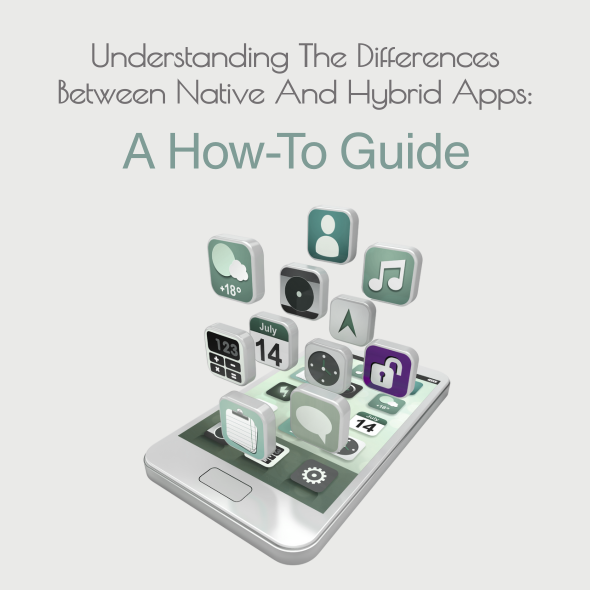The New Era of AI in 2025: From Gemini 3 to Creative AIs
Learn about the best AI tools for 2025, including Nano...
We use cookies for our website to give you the most relevant experience by remembering your preferences. By clicking “accept”, you consent to use of ALL the cookies
This website uses cookies to improve your experience while you navigate through the website. Out of these, the cookies that are categorized as necessary are stored on your browser as they are essential for the working of basic functionalities of the website. We also use third-party cookies that help us analyze and understand how you use this website. These cookies will be stored in your browser only with your consent. You also have the option to opt-out of these cookies. But opting out of some of these cookies may affect your browsing experience.
Necessary cookies are absolutely essential for the website to function properly. These cookies ensure basic functionalities and security features of the website, anonymously.
| Cookie | Duration | Description |
|---|---|---|
| cookielawinfo-checkbox-functional | 11 months | This cookie is set by GDPR Cookie Consent plugin. The cookie is used to store the user consent for the cookies in the category “Analytics”. |
| cookielawinfo-checkbox-functional | 11 months | The cookie is set by GDPR cookie consent to record the user consent for the cookies in the category “Functional”. |
| cookielawinfo-checkbox-necessary | 11 months | This cookie is set by GDPR Cookie Consent plugin. The cookies is used to store the user consent for the cookies in the category “Necessary”. |
| cookielawinfo-checkbox-others | 11 months | This cookie is set by GDPR Cookie Consent plugin. The cookie is used to store the user consent for the cookies in the category “Other. |
| cookielawinfo-checkbox-performance | 11 months | This cookie is set by GDPR Cookie Consent plugin. The cookie is used to store the user consent for the cookies in the category “Performance”. |
| viewed_cookie_policy | 11 months | The cookie is set by the GDPR Cookie Consent plugin and is used to store whether or not user has consented to the use of cookies. It does not store any personal data. |
Functional cookies help to perform certain functionalities like sharing the content of the website on social media platforms, collect feedbacks, and other third-party features.
Performance cookies are used to understand and analyze the key performance indexes of the website which helps in delivering a better user experience for the visitors.
Analytical cookies are used to understand how visitors interact with the website. These cookies help provide information on metrics the number of visitors, bounce rate, traffic source, etc.
Advertisement cookies are used to provide visitors with relevant ads and marketing campaigns. These cookies track visitors across websites and collect information to provide customized ads.
Other uncategorized cookies are those that are being analyzed and have not been classified into a category as yet.
Cyberia Tech, Inc. respects your privacy. This Privacy Policy explains how we collect, use, and share your information. By using our services, you agree to this policy. If any other agreements conflict with this Privacy Policy, the terms of those agreements prevail.
Cyberia Tech complies with the EU-US and Swiss-US Privacy Shield Frameworks for handling personal data from the EEA, UK, and Switzerland. In case of any conflict, the Privacy Shield Principles prevail. Learn more at Privacy Shield. Key Definitions
Information linked to an individual, transferred from the EEA, UK, or Switzerland to the U.S.
Data revealing race, religion, health, sexual orientation, and similar categories.
Effective Date: [ 2026 / 01 / 21 ]
Welcome to The Cyberia Tech ! By accessing or using our website or services, you agree to
comply with and be bound by these Terms of Use and our Privacy Policy. If you do not agree with
these terms, please do not use our Services.
Loading
0 %

Assume you’re considering the distinction between a native app vs hybrid app type. In such a situation, we can state that understanding each native app and hybrid app is not difficult.
Although they may look similar in certain circumstances, their essence is distinct. Simply said, it all relies on your budget, the market, your target audience, and your aim; on which operating system are you basing your strategy?
In this post, we will help you understand the native and hybrid app differences, so that you may make smarter decisions and design your future app without hesitation. Are you prepared?
Native apps in mobile app development are ones that are designed exclusively for a certain operating system. That suggests they have a common codebase.
What is the outcome? To obtain the app from two separate shops. Apple’s App Store and Google Play are both available.
As a result, you must first select a platform before deciding on a programming language. If you decide to create an iOS app, make it Swift or Objective C. If you go with Android, you may utilize Java.
Hybrid applications, like native apps, are created in a single codebase for two separate platforms. In a nutshell, hybrid refers to the creation of both native and web apps.
The rationale for adopting Hybrid applications, on the other hand, is to check how useful and effective the software is on both Android and iOS.
Well, to make a contrast between each of them, we can say that there is a sea of difference between native apps vs hybrid apps from their roots of performance to the app UI UX design. Let’s see how much they are different in ways.
Native apps have a lot of benefits to provide us with the best experience in using smartphones.
The backend development and frameworks lead a powerful performance and security, moreover, with the unique features that offer the best options in frontend development and design.
What are its benefits?
Not only in basic actions, but you can also see a much better result over complex apps, animations, and games.
What problems may happen during the native app development process?
For sure hybrid apps have their own positive facts. You may not believe it, but some of the popular apps on your smartphone have been made out of hybrid app development.
So, let’s check the reason behind it.
What are the insufficient options?
Till now, you understand how each of them can be helpful. Let’s see some examples from native apps vs hybrid apps.
An online video streaming to watch and search for your favorite movie. The supporting related panels are the positive points of this app. You can watch whatever you want from Netflix and Hulu.
A popular app for setting a plan on holidays and weekends to find brand new places, check-in and find a restaurant, eat out, and have a beverage.
Yes, surprisingly, Twitter is a recognizable app worldwide that it is a built-in hybrid form. So, we can say that it is not that bad at all. Just imagine how much traffic this app has every day, 24/7.
The other high-performance hybrid app monitors the top and the most trends cryptocurrencies. Besides, you can buy digital cryptos.
All of us know what YouTube is. We watch, share, and make money from this platform and learn many things.
A location finder that works based on GPS. It makes the navigation process easy. It gives you the instructions to have a better driving experience.
Run away from the traffics and download it for free from your store.
A well-known app for music lovers so that they can listen to thousands of songs and podcasts online from any genre.
Owing to the google cloud, you can see satisfactory performance and workloads.
The idea is that everything is up to you. Assume you are a startup looking to extend your vision. In such instances, the cost is critical, and hybrid app development is the way to go if you want a speedy development process.
However, if you have a limitless amount of time, you may pay a lot of money for a lucrative performance and sign a contract with a native app developer.
But keep in mind, while considering the differences between native and hybrid apps, that there are certain strong frameworks, like Ionic or Flutter, that may boost the intensity of your app while creating on the hybrid.
Is WhatsApp a native or hybrid app?
Localised Apps, the two most common mobile operating systems are iOS and Android. For iOS, developers utilise Swift and Objective-C, whereas Java and Kotlin are used for Android. Spotify and Facebook’s WhatsApp are two instances of native apps that have found widespread success.
Is Twitter a native app or a hybrid app?
Gmail, Instagram, and Twitter are just a few of the hybrid apps that have seen significant growth in user base in recent years. Hybrid apps are the greatest choice for businesses who want to reach clients via the web and mobile devices on a smaller budget and shorter timetable.
This is the ultimate option that matters, whether you choose a native app vs hybrid app. We attempted to provide a clear graphic representation of the differences between native and hybrid apps.
The links in this post will provide you with much more thorough information regarding native app and hybrid app.
You can follow them and have a better understanding. Also, Cyberia Tech is a place to hear your new ideas and get some business advice. Contact Us.
We will help you get started with app development. You understand that time is money, so get your concept out there before someone else does.
You Can Get More Information!
